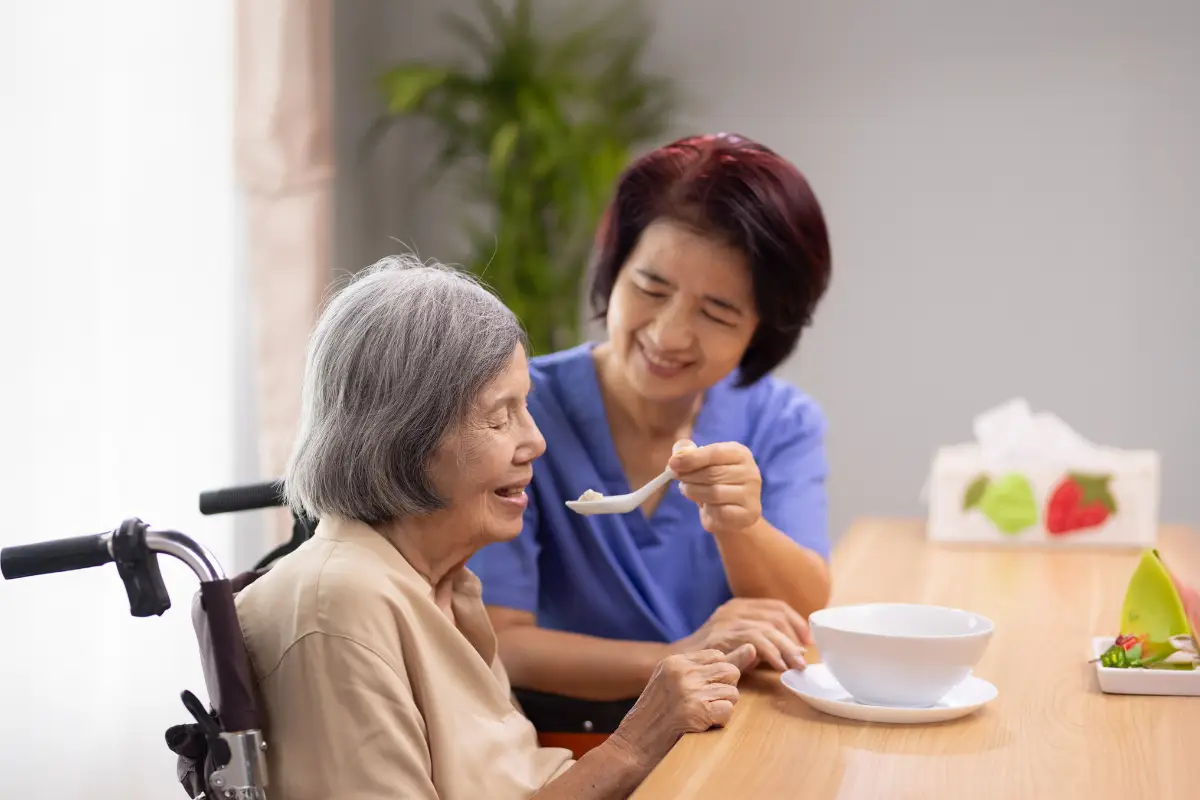Caregiving Careers: Why Canada Needs Skilled Caregivers
Canada needs skilled caregivers for children, the elderly, and other individuals requiring additional support at home. As our country’s population ages, this demand is expected to continue growing.
Skilled caregivers are more important than ever for our local families, communities, and the healthcare system. They provide services that help some maintain a positive quality of life at home. It can minimize unnecessary visits to family doctors or emergency services, reducing stress on local emergency healthcare services.
Continue reading to discover the vital role that qualified caregivers play in our communities and learn how you can help meet the demand for caregivers in Canada.
The caregiver demand in Canada
As of this past summer, there are approximately 8.1 million Canadians aged 65 and older (nearly 20% of the population). With such a growing, aging population, the caregiver demand in Canada is expected to grow in the coming years.
In addition to caregivers for the elderly, caregivers will also be required to support other age groups with chronic illness or disability, which is also on the rise. In 2021, 45% of Canadians lived with at least one major chronic disease (and 1/12th had three or more chronic conditions). Some individuals may require additional support at home or in caregiving facilities, which can increase the strain on the healthcare system.
To meet this growing demand for compassionate and qualified caregivers, the industry needs to address workforce shortages and fill the gaps left by those leaving the profession (due to retirement, burnout, or career change). That’s why more schools, like Capital College, are starting to offer skilled caregiver programs in BC.
How skilled caregivers support families
Skilled caregivers support families in many ways:
- Physical Care: Depending on the caregiver’s qualifications, they may be able to provide medical care. This could be as simple as reminding patients to take their medications, providing wellness checks, supporting basic hygiene needs, or providing basic nursing or medical care.
- Emotional support: Emotional support is critical for all ages, especially the elderly, individuals with disabilities, or those with no other family or friends for emotional or physical support. Needing care at home can be tough for some to admit, as it feels like a loss of control. In fact, a caregiver can help patients improve their quality of life, and emotional support plays a crucial role.
- Peace of Mind: As a caregiver, you become a trusted extension of your client’s family. Knowing you’re there to care for the patient gives the patient’s family peace of mind, so they can work and manage their own health without feeling burdened by the responsibility. It can also put patients’ minds at ease, knowing that there is someone available to help them maintain as much independence as possible and will be there if they need assistance.
The impact of skilled caregivers on healthcare
Having skilled caregivers who work in patients’ homes or assisted living facilities can alleviate pressure on the broader healthcare system. Caregivers serve as an extension of other healthcare teams. They provide basic-to intermediate-level care at home, minimizing the need for unnecessary doctor’s appointments or ER visits.
Caregivers provide ongoing wellness support and preventative care for their patients. With ongoing monitoring and in-home support by a skilled caregiver, critical health and wellness issues are more likely to be caught early, before they require prolonged hospital care and procedures.
The contribution of caregivers to communities
Caregivers play an important role in their community:
- They enable seniors to age in place longer because they have a support system
- They enable those with disabilities to remain at home with their loved ones
- They help parents return to work, knowing their children are cared for
- They help their patients get out of the house to safely participate in their community
Skilled caregivers provide a safe space for their patients. This helps them receive the care they need to remain active members of their community, and for their families to do the same, unburdened by family caregiving duties.
Challenges faced by skilled caregivers
So, if caregivers play such an important role in our communities, why is there so often a shortage of caregivers? The caregiving field often struggles with:
- Training and certification requirements: Some caregiving roles require specialized training and experience, especially those that require providing more advanced nursing care.
- Workplace stress and burnout: Some jobs and patients can be physically and mentally demanding on caregivers. Some patients may have disabilities that cause them to be physically or emotionally abusive, and others may be frustrated with their situation and take their frustrations out on caregivers. Other patients may welcome the extra help but require more hands-on physical support (such as lifting a patient into a bathtub or supporting a mobility-challenged patient getting in and out of a car), which can take a toll on the caregiver. Half of all caregivers in Canada experience burnout within their first five years of service.
- Immigration and recruitment challenges: Evolving immigration requirements can make it difficult to bring skilled caregivers from abroad. It can also be challenging for some caregiving agencies to recruit skilled caregivers if they offer a wage that falls below the living wage.
Solutions and opportunities for the caregiving industry
The industry is seeking ways to address these challenges. This may include creating programs and better incentives to attract skilled caregivers from abroad. This may not happen until the community voices its concerns loud enough for agencies to take action.
Quality training programs and professional development (including mental health support) will also help ensure a steady stream of new graduates enters the caregiving job market. That’s why Capital College launched its new caregiver training program to help meet this growing need for skilled caregivers.
How to begin a rewarding career as a professional caregiver
Caregivers are more than healthcare aides. They play a vital role in the health and well-being of patients and their families. They ensure that those who need support have someone to rely on, allowing them to maintain a fair quality of life, and enabling loved ones to refocus more of their energy on their own health and wellness.
The new Caregiver Program at Capital College teaches the caregiving job skills you need to support individuals of all ages, including young children, adults, and the elderly, in both institutional and community settings. It also serves as a structured pathway for skilled and compassionate caregivers to work and live in Canada while addressing the growing demand for essential care services.
Aside from a passion for supporting the needs of others, admission requirements include being at least 18 years old and having a CLB4 proficiency in English. Learn more about the Caregiver Program at Capital College and apply today.

